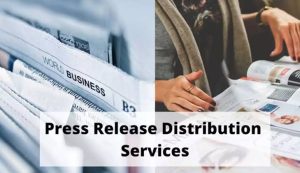The concept of empowering women is a prevalent topic in various policy discussions, spanning from government meetings to nonprofit organizations and even among corporate leaders striving to engage the substantial demographic of the 108.09 million women who comprise 49.46% of Nigeria’s population according to Statista. While this heightened focus on women has led to greater efforts and initiatives aimed at empowering them, one crucial question that arises is: are these efforts truly empowering women with the tools they need to thrive?
Holistic women empowerment captures economic, social, and mental freedom. According to UNICEF; to be empowered, women and girls must not only have equal capabilities (such as education. and health) and equal access to resources and opportunities (such as land and employment), but it also hinges on their ability to exercise agency in utilizing these resources. This underscores the pivotal role of economic and financial empowerment within the broader scope of women’s empowerment, as financial freedom often serves as a catalyst for other forms of freedom.
In August 2023, Elizabeth Kalu and Adaugo Nwankpa conducted an in-depth analysis of the financial status of Nigerian women to shed light on the actual financial standing of women, particularly in light of the increasing presence of women in the workforce, both in the corporate and business space. Their research involved surveying nearly one hundred Nigerian women, residing both within the country and abroad, to gauge their perception of their financial stability.
A fundamental hypothesis in their study was that “many women face challenges when it comes to achieving financial stability, and this impacts their ability to save and invest.” In Elizabeth and Adaugo’s research, financial stability or well-being was defined as a state in which an individual can meet their immediate and ongoing financial needs while also having sufficient funds or investment opportunities to feel confident and secure about their financial future.
True to their assumptions, their findings revealed a significant deficit in financial stability among women. In fact only 18.4% of the women surveyed report to be financially stable despite an employment rate of about 68% among them. This underscores a critical issue: the increased participation of women in the workforce has not translated into improved financial stability for them.
Furthermore, the survey responses shed light on the root causes of this financial instability. A notable percentage of respondents cited low income as the primary obstacle preventing them from saving. Intriguingly, the survey also unveiled that unexpected emergencies and family obligations were formidable adversaries in the battle for women’s financial stability.
Projects, interventions, and gender-focused campaigns play pivotal roles in the ongoing quest for women’s economic independence and, consequently, women’s empowerment. Nevertheless, it is imperative to harness data and insights gleaned from comprehensive surveys like this when formulating these initiatives. This research/evidence-based approach ensures that interventions, programs, campaigns, and initiatives are tailored to address genuine challenges, fulfill actual requirements, and propel women forward in a sustainable way.
The State of Women Report by Elizabeth Kalu and Adaugo Nwankpa provides timely insight into the economic lives and needs of women and serves as a valuable policy-framing tool for individuals, governments, think-tanks, NGOs, NPOs, and other stakeholders in building/shaping policies, initiatives and products for Nigerian women.











